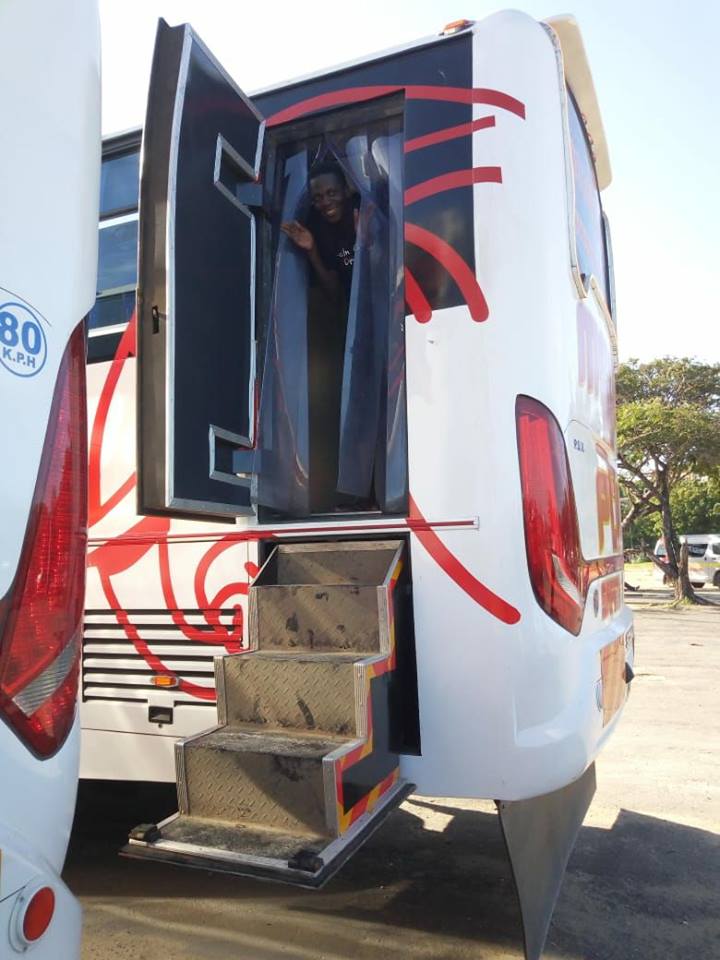Mash East Africa two weeks ago launched two refrigerated buses called ‘Laxa Refrigerated’ that will ferry perishable goods such as fruits, vegetables, mushrooms, flowers, fish, meat and dairy products to Mombasa, reducing the cost by approximately 88 per cent.
This comes at a time when reports indicate that Mombasa has a thriving agro-based industry which deals mainly in tea processing and packaging, wheat, porridge and maize flour milling as well as vegetable oil processing but all these rely mostly on imported raw materials.
The company launched the buses, which have one refrigerator facility with a capacity of 0.5 tonnes installed at the back end, after receiving requests from regular customers and complaints of produce going bad before reaching the destination due to a lack of preservative measures.
Furthermore, agro-dealers were forced to buy cooler boxers and ice, an added expense, in order to transport goods between the two cities and ensure that they remain fresh for the six to 10 hour journey via bus.
“Transporting fruits from Mombasa to Nairobi can be a challenge because we have to spend more money on either hiring cooler boxes or buying in order to ensure that it does not go stale,” said Alex Kituku, a pawpaw farmer based in Nairobi.
A generic cooler box of 25litres capacity goes for between Sh4,000 and Sh5,000. Such boxes require ice packs in order to keep perishable goods fresh for at least eight hours. An ice pack of 30 by 20 centimeters, could cost a customer Sh350 totaling to about Sh5,350 minus transport cost which is approximately Sh400 per kilo of fresh produce.
The refrigerated bus has therefore reduced transport cost for agro-dealers from a total of about Sh6000 to Sh700 transport cost between Nairobi and Mombasa.

With the new Mash East Africa innovation, perishable goods can arrive to their destination fresh even after 48 hours and it will now cost agro-dealers Sh700 transporting between one to 20 kilograms of goods per trip between Nairobi and Mombasa and any extra kilogram is charged Sh20. However, for those whose goods’ destinations will not be within the central business district of the cities, they will have to pay Sh200 for delivery to their designated areas.
The two buses also have a 28 passenger seating capacity each. Their travelling schedules are such that if one is in Mombasa the other is in Nairobi and both depart from their respective stations at around 8:30pm arriving at 5am. Most of the customers prefer planning their transport services in the evening as there is no heavy traffic, therefore their produce will be ferried overnight and received in the morning.
The company also seeks to enable cheaper transport of fresh produce across the country. According to a 2016 agro dealer baseline study conducted by Nairobi +based research firm, Bayesian Consulting Group, agro dealers spend Sh33,894 annually on transportation charges of produce nationally and a further Sh11,403 on loading and offloading annually.
“The key cost elements for agro dealers include storage, transport, loading and offloading labor, licensing, wages and salaries, and sales promotion. In some instance, thgey are forced to sell their produce at high prices, mainly due to long distances to agro dealership outlets and poor infrastructure that adds to transportation costs,” reported Bayesian Consulting Group.
In Kenya, sukuma wiki (kales) attracts the highest transport cost at 58 per cent, which can due to high demand as it is a staple food that is mainly accompanied by Ugali, thus it common in many households. It is followed by spinach at 48 per cent, onions at 38 per cent and tomatoes at 36 per cent, according to a study by the Kenya Market Trust on the cost of transporting fresh produce across the country.
Mash East Africa operates within the region; Kenya, Rwanda, Tanzania and Uganda, but the refrigerated buses will only service the Nairobi to Mombasa route. Its buses including the refrigerated are assembled in Kenya by a motor assembly company in Nairobi which also installs the refrigeration facilities upon receiving specifications from the company.